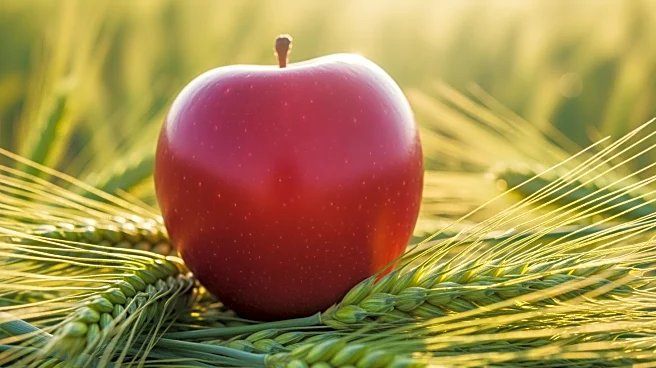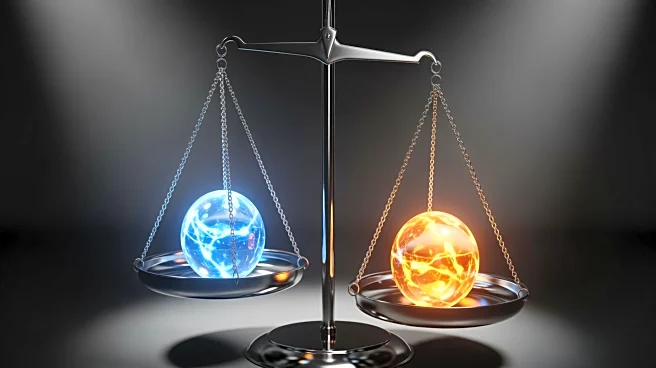What is the story about?
What's Happening?
The MTV Video Music Awards 2025 celebrated both past and present musical achievements, with Lady Gaga emerging as a prominent winner. The event, hosted by LL Cool J and aired live on CBS, featured performances from various artists, including Doja Cat, who opened the show with a tribute to the 1980s character Max Headroom. Lady Gaga, who led the nominations with 12, won the Artist of the Year award, presented by Lenny Kravitz. Her acceptance speech emphasized the importance of art in daily life and dedicated the award to her fans, known as 'Little Monsters.' The event also included performances by Sabrina Carpenter, Mariah Carey, Ricky Martin, and Busta Rhymes, with Carpenter winning awards for Best Pop and Best Album. A tribute to Ozzy Osbourne was performed by Yungblud and Aerosmith.
Why It's Important?
The MTV VMAs serve as a significant platform for artists to gain recognition and showcase their work to a global audience. Lady Gaga's win as Artist of the Year highlights her continued influence and popularity in the music industry. The event also underscores the evolving landscape of music, with performances and awards reflecting diverse genres and social issues, such as Sabrina Carpenter's performance advocating for trans rights. The VMAs impact the music industry by setting trends, influencing public opinion, and providing artists with opportunities for increased visibility and career advancement.
What's Next?
Following the VMAs, artists like Lady Gaga and Sabrina Carpenter may experience increased media attention and opportunities for collaborations and performances. The awards could lead to heightened interest in their upcoming projects and tours. The event's focus on social issues may inspire further advocacy and activism within the music community. Additionally, the VMAs' live broadcast on CBS could pave the way for more mainstream media coverage of music events, potentially expanding their reach and influence.
Beyond the Headlines
The VMAs' emphasis on social issues, such as trans rights, reflects a broader cultural shift towards inclusivity and advocacy within the entertainment industry. This trend may encourage artists to use their platforms for social change, influencing public discourse and policy. The event also highlights the intersection of music and technology, with performances incorporating innovative elements like simulcasts and digital tributes, which could shape future music production and consumption.














